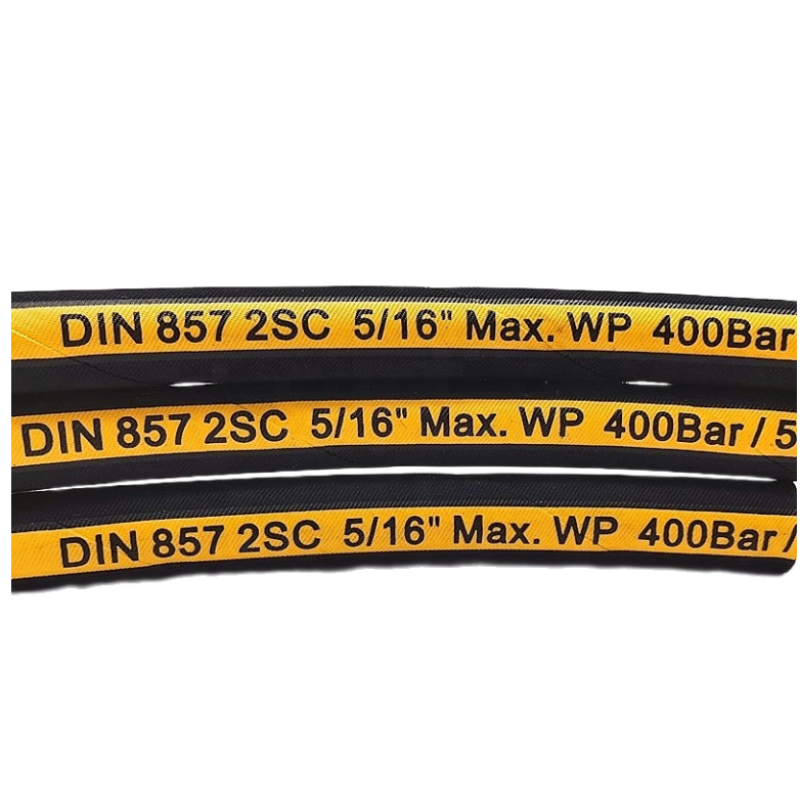Dec . 06, 2024 04:02 Back to list
ce certification all sizes hydraulic hose exporters
Understanding CE Certification for Hydraulic Hose Exporters
In the global marketplace, the demand for high-quality hydraulic hoses is continually rising. Hydraulic hoses play a crucial role in various industries, including construction, agriculture, and manufacturing. However, with the increase in demand, there are also heightened regulatory and quality assurance requirements, notably the CE certification. This article aims to provide significant insights into CE certification for hydraulic hose exporters, especially those dealing with various sizes of hydraulic hoses.
What is CE Certification?
CE marking is a certification mark that indicates conformity with health, safety, and environmental protection standards for products sold within the European Economic Area (EEA). The letters CE stand for Conformité Européenne, which translates to European Conformity. For exporters of hydraulic hoses, CE certification is crucial as it demonstrates that their products meet European Union (EU) regulations and directives concerning quality and safety.
Importance of CE Certification for Hydraulic Hoses
1. Market Access One of the primary reasons exporters seek CE certification is that many European countries require it as a prerequisite for market access. Without CE marking, exporters may find it challenging to enter or compete in the EU market. This certification not only facilitates trade but also helps build brand reputation.
2. Consumer Confidence CE certification reassures customers about the safety and reliability of the hydraulic hoses they purchase. In industries where equipment operation is critical, such as construction or manufacturing, customers prefer products that meet established standards. The CE mark serves as a symbol of quality assurance, thus enhancing consumer confidence.
3. Legal Compliance Exporting hydraulic hoses without CE certification can lead to legal complications. Non-compliance with EU regulations can result in fines, product recalls, and even lawsuits. For exporters, being CE compliant minimizes risk and helps in adhering to legal obligations.
4. Quality Assurance CE certification processes often involve rigorous testing and evaluation of products. This not only ensures that the hoses meet required safety standards but also enhances quality. Exporters can improve their product quality by engaging in the CE certification process, leading to lower failure rates and better customer satisfaction.
ce certification all sizes hydraulic hose exporters

The CE Certification Process for Hydraulic Hose Exporters
The process of obtaining CE certification involves several steps, which exporters must carefully navigate
1. Identify Applicable Directives Different products are governed by different regulations within the EU. Hydraulic hoses may be subject to several directives, including the Machinery Directive and the Pressure Equipment Directive. Exporters must identify which directives apply to their products.
2. Product Testing To comply with CE marking, products must undergo testing to confirm they meet standard requirements. This may involve pressure testing, durability assessments, and other evaluations. Engaging with accredited testing organizations is pivotal in ensuring accurate and reliable results.
3. Technical Documentation Exporters must compile a technical file that includes product specifications, evidence of testing, and details of the manufacturing process. This documentation reflects compliance and must be made available upon request by regulatory bodies.
4. Declaration of Conformity Once testing is complete and compliance is confirmed, exporters must draft and sign a Declaration of Conformity. This document asserts that the product conforms to EU regulations and is essential for the CE marking process.
5. Affix the CE Mark After completing all necessary steps, exporters can affix the CE mark to their hydraulic hoses. This mark must be visible and permanent, signifying compliance.
Conclusion
In conclusion, CE certification for hydraulic hose exporters is not merely a regulatory obstacle but an opportunity to enhance product quality, consumer confidence, and market access. It is an essential part of the export process, particularly for those looking to penetrate the European market. By adhering to the CE marking requirements, hydraulic hose exporters can not only comply with legal mandates but also position themselves as quality leaders in a competitive global market. As the demand for hydraulic hoses continues to grow, understanding and embracing CE certification will be a significant asset for exporters aiming for success in their international endeavors.
-
Best Four Steel Wire Spiral Hose Hydraulic R12 – Durable High-Pressure Hose Manufacturer
NewsJul.08,2025
-
High-Quality 1/4 Hydraulic Hose – Soft, Flexible & Durable Rubber Hoses for Industrial Use
NewsJul.08,2025
-
1 1 2 Inch Hydraulic Flexible Hose - Durable, Reliable, High-Pressure Solutions
NewsJul.07,2025
-
High-Quality 1 2 Rubber Hose - Durable, Flexible Hydraulic Solutions
NewsJul.07,2025
-
Discover SAE Hydraulic Hose Types - High Quality & Durable Hoses from Leading Factory Supplier
NewsJul.06,2025
-
High Pressure Wire Hydraulic Rubber Hose Supplier Durable & Reliable 1SN Hose Solutions
NewsJul.06,2025
